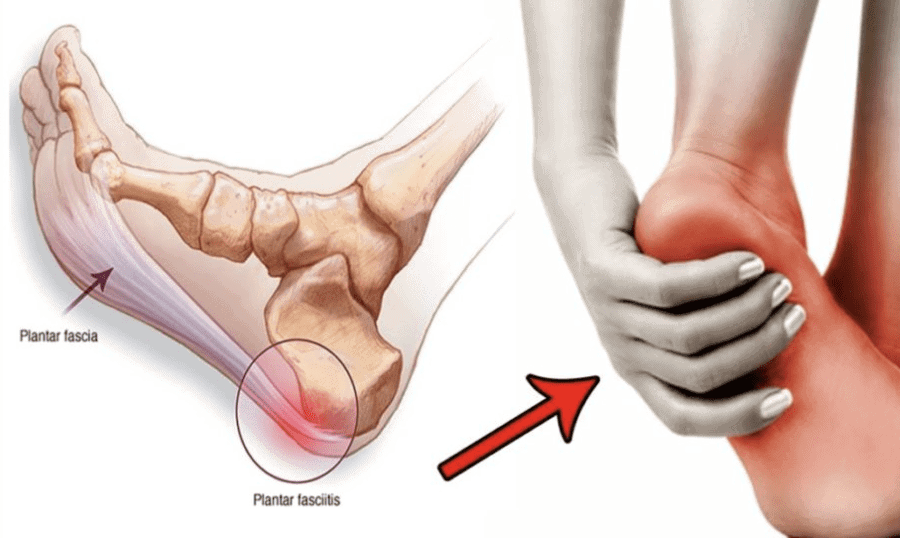Have you ever had foot pain and your friend told you it was probably plantar fasciitis? While plantar fasciitis is a common problem that causes foot pain, it is not the only thing that will cause the bottom of your foot to hurt.
It’s important to not assume that any foot pain is plantar fasciitis. And if your foot pain is on the top of your foot, I can tell you the issue is not with your plantar fascia.
If you want to figure out if your foot pain is plantar fasciitis or not, keep reading this article!
What is plantar fasciitis?
Plantar fasciitis is a condition where your plantar fascia is inflamed. The plantar fascia is strong connective tissue that runs from your heel all the way to the base of your toes.
Because we have to stand and walk to live our lives, plantar fasciitis can be difficult to manage because it is a hard tissue to fully rest.
What are the symptoms of plantar fasciitis?
Most people will report a burning or sharp pain near their heel on the bottom of their foot when they weight bear or when they are walking.
Plantar fasciitis will typically feel better when you are sitting or offloading the foot.
What causes plantar fasciitis?
Plantar fasciitis is most commonly caused by overuse or poor footwear.
Because plantar fasciitis is secondary to inflammation, it means that you have repetitively stressed the plantar fascia either through an increase in activity or by not giving your foot the support it needs when walking.
Potential Diagnoses
Plantar fasciitis is often a diagnosis that is given on its own. It may however be accompanied by one of the following diagnosis as well:
- Ankle or foot osteoarthritis
- Hallux valgus (big toe turns inward)
- Calf complex tendinopathy
Did you know?
Did you know the number one thing you can do to prevent plantar fasciitis from occurring is assure your shoes have adequate arch support?
It is common for individuals who wear flip flops without an arch support to develop plantar fasciitis as the lack of support puts excessive stress on your plantar fascia with each step.
You can offload your plantar fascia and let it heal by beginning to wear shoes that have a bit of a heel drop to them.
If you are active or spend a lot of time on your feet, it’s important that you give your feet the support they need to avoid overuse injuries like plantar fasciitis.

